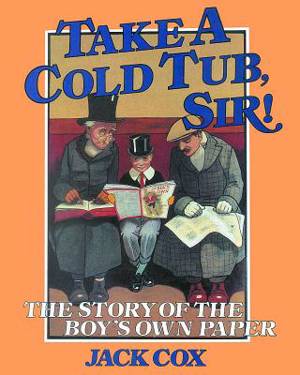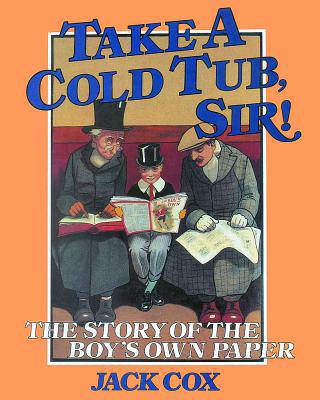
- Afhalen na 1 uur in een winkel met voorraad
- Gratis thuislevering in België vanaf € 30
- Ruim aanbod met 7 miljoen producten
- Afhalen na 1 uur in een winkel met voorraad
- Gratis thuislevering in België vanaf € 30
- Ruim aanbod met 7 miljoen producten
Zoeken
€ 59,95
+ 119 punten
Omschrijving
Few magazines have ever won such affection and regard as the Boy's Own Paper. In its meridian years B.O.P.'s influence reached world-wide, and its name is still a household world. First issued on January 18, 1879, price one penny, it was a modest 16-page publication produced by the Religious Tract Society in the earnest hope of counteracting the lurid penny dreadful of the day. A dedicated team set to work to create a magazine which parents and guardians would approve, schoolmasters and ministers would recommend, and boys themselves would buy, read, enjoy. No easy task - but the result was a triumph. Within five years the readership topped a quarter of a million. It became, and was to remain, a British institution. Two generations of boys had grown up with B.O.P. by the time Jack Cox took over as Editor in 1946. He was to remain until the paper's sad closure twenty years later. Himself a reader as a boy, he treasured his contacts with readers, authors and staff past and present, and writing this splendid history of the paper was a labour of love. Drawing on a wealth of illustrations from the original issues, and with engaging glimpses of boardroom deliberations and office routine in earlier times, Jack Cox tells the paper's own enthralling story. He traces its history from the rattling adventures and bracing advice of the Victorian era to the practical hobbies and technical know-how of the post-War world, showing how it won the trust and love of the readers who remember it still with such warm affection.
Specificaties
Betrokkenen
- Auteur(s):
- Uitgeverij:
Inhoud
- Aantal bladzijden:
- 128
- Taal:
- Engels
Eigenschappen
- Productcode (EAN):
- 9780718825058
- Verschijningsdatum:
- 1/07/1982
- Uitvoering:
- Hardcover
- Formaat:
- Genaaid
- Afmetingen:
- 208 mm x 260 mm
- Gewicht:
- 666 g

Alleen bij Standaard Boekhandel
+ 119 punten op je klantenkaart van Standaard Boekhandel
Beoordelingen
We publiceren alleen reviews die voldoen aan de voorwaarden voor reviews. Bekijk onze voorwaarden voor reviews.







